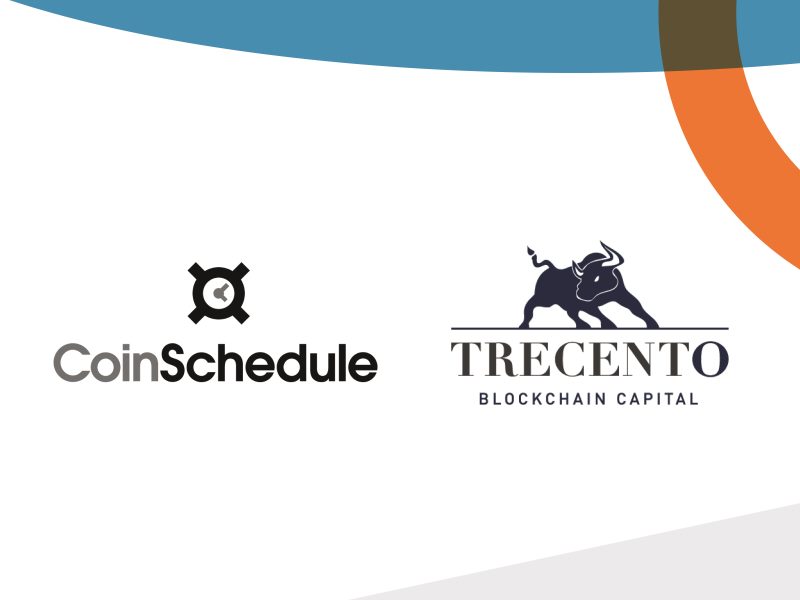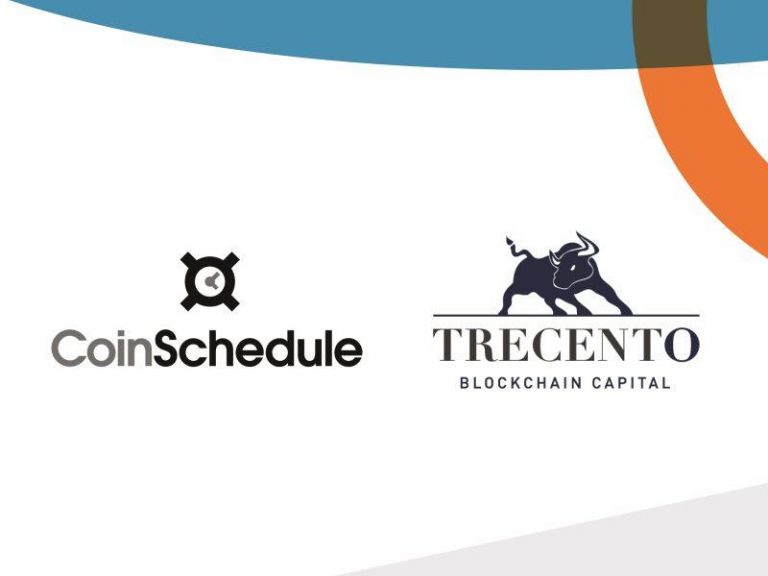2018-11-11 22:22 |
If you are not familiar with security token offerings (STOs), maybe you should be.
With regulators gunning for initial coin offerings (ICOs) and now going after decentralised exchanges (DEXs) too, industry players are looking at news ways of raising money.
Changing the name to “token generation event” doesn’t cut it with most regulators and, in and of themselves, neither do simple agreements for future tokens (SAFTs).
According to CoinShares chairman Daniel Masters, STOs will be the next big thing in crypto.
Speaking as part of a panel at a breakfast briefing organised by Dow Jones media outlets Financial News and MarketWatch, he identifies a third wave for crypto.
According to Masters, Bitcoin ushered in a “new era in value transfer”, with the second wave led by Ethereum with its “frictionless way to globally form capital” and today a third wave of security tokens “with particular advantages for assets that have historically remained in private hands”.
CoinShares sponsored the event and is the company behind the XBT Provider Bitcoin and Ethereum exchange traded notes. Trading in the ETNs in the US was temporarily suspended in September because of confusion over the difference between ETNs and exchange traded funds (ETNs are unsecured debt securities).
Untapped value of privately held assetsSome of the largest companies in the world are privately held, such as Cargill for example, valued at more than $109 billion that dominates agribusiness or Koch Industries, which straddles sectors encompassing consumer goods and oil. It is valued at $100 billion.
Many are of course valued much less loftily. These companies prefer the freedom of movement that staying private allows but if they did come to public capital market for funds there values would rocket because of the simple fact that there are more participants in those markets – it’s all about liquidity.
Now think about a whole host of other privately held assets, such as classic cars, art, stamps, gold and so on. All of these assets could be tokenised and in so doing, their valued enhanced.
It could open up a world typically hidden from view behind the private equity and venture capital shutters, where mere mortals are forbidden to tread.
“Legacy financial institutions will not be able to avoid the tokenisation wave,” insists Masters.
He expects a “magnetic force” to pull them towards these possibilities, regardless of their aversion to all things crypto.
What went right and what went wrong with ICOsBriefly, let’s go back to the second wave to see how we get to this claimed third wave in the evolution of the crypto space.
Initial coin offerings have been hugely successful. For the first time in human history it was possible for any one in the world with access to the coding skills to solicit for investment capital from contributors potentially at any locale in the world with internet access.
It is estimated by ICOData.io that $13.3 billion has been raised by ICOs since 2015. By any measure that has to be seen as a success.
But this year the story is different with investors sitting on losses of ninety per cent or more. Far from offering diversification, many of the tokens have turned out to be worthless as the projects and the services they aimed to provide closed.
As Chris Burniske from placeholder.vc pointed out last week, many of the projects involved in ICO fundraising concentrated almost exclusively on bring in investment capital but not on how to deploy it as productive capital (such as getting the consensus system up, running and growing).
Put that another way, contributors to ICOs/TGEs effectively stuffed the bank accounts of the founders and team members with ETH and were left with no control over how the investment capital was used and no claim to a share of company capital.
Contributors to ICOs are paying for access to network services. Some investors may have confused that with a share that gives the bearer legal ownership of a portion of company capital. But ICOs are not initial public offerings of the equity markets, despite the deliberately confusing designation.
ICO investors it is assumed were mostly aware of this crucial difference between tokenholder and shareholder, but invested anyway; indeed they continue to invest in ICOs although at a much reduced rate, in the expectation that the value of the native “utility” token will rise.
The problem with all that, from a regulator’s stance is that ICOs look very much like securities when judged against the Howey Test used by the US Securities and Exchange Commission (SEC).
For that reason many ICOs began to exclude US investors from their fundraising efforts, with hubs developing in Switzerland, Singapore and Malta, where no such stipulations were applied, although reputable projects will still require anti-money laundering (AML) and know-your-customer (KYC) rules to be adhered to.
ICOs are not just a problem for regulators. They are also obviously a problem for consumers caught on the wrong side of the fraudsters.
The open decentralised and largely unregulated nature of ICOs, or TGEs if you insist, means they attract scammers to the space, and that of course worries both individual investors and regulators alike.
Although there are still plenty of ICOs launching, the days of billion dollar fundraises, such as seen with EOS’s $4 billion, are over, at least for the near-term.
Enter the Security Token OfferingBut with the SEC and various US states starting to clampdown hard on ICO promoters for not registering as sellers of securities and abiding by the appropriate securities laws, with other jurisdictions likely to follow in their footsteps, the days of the ICO may be numbered.
That’s where security tokens come in. Instead of trying to fight the regulators there are those who seek their warm embrace.
Cypherpunks and others wedded to hopes of decentralised disruption of the banks and other financial intermediaries, may well be suspicious of security tokens. Are they not merely another vector – such as putative bitcoin exchange traded funds – for the takeover of the crypto space by the mainstream?
However, supporters of STOs such as Masters, whose company has a foot in both the old and new world, see the advantages. On the one hand there is the regulatory safe harbour for project developers and on the other a huge opportunity to “make securities liquid, transferable and transparent” and opening a wide vista for “arbitrage between private and public capital markets”.
The most successful STO to date is from tZERO, which raised $134 million for its trading platform and then there was electric scooter company SPIN‘s $125 million raise.
tZERO’s investors were required to have a “fully funded signed agreements for future equity (SAFEs) prior to the August 6, 2018 close of the company’s Security Token Offering (STO)”.
tZERO is a subsidiary of Overstock.com, the publicly traded online retailer that accepts crypto.
Another start-up, Securitize, was involved in transferring the first security over blockchain:
“Today we did the first transfer of a security on a public boockchain.” With @airswap –@carlosdomingo
— Securitize (@securitize_io) November 2, 2018
The compliant token was issued by SPICE Venture Capital Fund on Securitize and transferred over decentralised exchange AirSwap.
With the SEC recently fining EtherDelta $400,000 for running a securities exchange without registering with the authorities, the question of compliance with security law is something crypto projects could do without.
Add to that access to much greater liquidity and the attractions of STOs grow further.
Securities on blockchainSpeaking on the panel alongside Masters was Myles Milston, chief executive of Globacap, which is creating securities on blockchain.
The company is in the fourth cohort of the UK’s Financial Conduct Authority’s regulatory sandbox. This provides the regulatory safe harbour for fintech startups to build products without the handicap of having to worry about infringing regulations.
Globacap describes itself as “a platform that is simplifying, streamlining and widening access to global capital by creating securities in blockchain”.
Milston explained the company’s approach: “Bitcoin is the most secure database we have on the planet right now. Apply that to securities. The ledger automatically updates, for example when a security trades – it’s a complete digital securitisation… We are the first in Europe to do tokenisation of equites.”
He added: “The ICO second wave is like 1850s in the US with railways.” It seemed then that almost anyone could set up a corner shop selling shares in some railway company or the other.
Masters makes a similar observation in a different way: “Ethereum made the crypto space turn from mono-dimensional to multi-dimensional.”
Milston again: “What we are doing fits into existing securities legislation.”
Just as stablecoins could be one of the key on-ramps for financial institutions looking to invest in the crypto asset class, so too could security tokens.
“A smart contract could link to a share registry. We could to see a lot of the unnecessary work in the public markets taken out,” Masters says .
STOs could also be attractive to regulators. “A security framework is going to be a win for regulators.”
STOs a threat to decentralised capital raising?So perhaps instead of viewing STOs as a threat or a way for regulators to curtail the open decentralised fundraising model, a less adversarial stance should be adopted by the crypto community.
Joe Oehmke from global consultancy Promontory Financial Group and specialists in regulatory strategy, supports that view.
Promontory Financial Group is owned by IBM and Oehmke wrote the IBM whitepaper on blockchain and the European Union’s General Data Protection Regulation, which came into force in May this year.
“Regulators are not necessarily the adversary. It’s about how we can foster innovation,” says Oehmke.
Oehmke advises firms on blockchain and US financial regulation among other things.
“There are certainly challenges when it comes to crypto assets, such as fraud and volatility,” he continues.
“There are plenty of illicit uses by bad actors so states and the general public have an interest in curing.”
Not surprisingly, perhaps, he doesn’t think crypto is “a cure-all for what ails the financial system”, but recognise that “regulation is inherently backward looking so always playing catch up”.
Although he didn’t offer an opinion as to whether STOs were the best way forward for crypto startups looking to raise capital, he lauded the FCA’s regulatory sandbox approach and noted how it has been adopted by other jurisdictions, notably by the Monetary Authority of Singapore, which is the City state’s financial regulator and central bank.
Oehmke admits “it is a challenge to think about regulation on a global level. Even just in the US it is a problem aligning the laws of 50 states.”
Common sense approachNotwithstanding that, he sees how STOs could have a valuable role to play for regulators and the regulated: “Crypto is here. Common sense approaches of how to deal with the world as it is,” says Oehmke.
Stepping back a little, if there are a multitude of STOs and digital securitisation chains, how do they work together in the absence of central bank digital currencies (CBDCs)?
Masters thinks the answer is obvious. “Bitcoin can be the transport rail and settlement currency for securities.”
Many in the audience – a mixture of journalists, analysts and fund managers – took issue with that assertion.
Patrick Byrne, chief executive of Overstock, was not present at the briefing but would presumably agree with Masters given his comments a few days ago:
“When people start getting into it is when their own financial systems collapse. So yes, given that I think the entire modern financial system is a big Keynesian, magic money tree Ponzi scheme, I do expect that the day will come when people turn to crypto.”
So the next time you look at your portfolio of near-worthless utility tokens that generate no dividend income and have no claim on the company capital, think about how it could all have been so different if you owned a real security.
The sad truth of the ICO second wave of crypto was that, more often than not, they were money-making machines for the financial insiders who bought in the private pre-sale at much lower prices, and the founders who squirrelled away the ETH but failed to invest in productive capital to maintain and support the crypto network envisaged in the whitepaper.
Globacap’s Milston sees massive growth to come for STOs.
“There is a huge amount of money in private assets that is currently untapped. In 10 to 12 months we will see an explosion.”
Ok, we would expect him to say that, given his companies mission, but he could be onto something as regulators circle and crypto grows up.
The briefing was moderated by Duncan Mavin (pictured left at the top of the story), managing editor for news operations and standards, Dow Jones Media Group.
The post Security Token Offerings – The Next Big Thing In Crypto? appeared first on Ethereum World News.
origin »Bitcoin price in Telegram @btc_price_every_hour
Waves Community Token (WCT) íà Currencies.ru
|
|


























